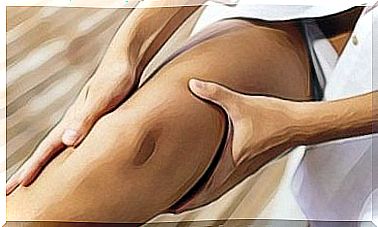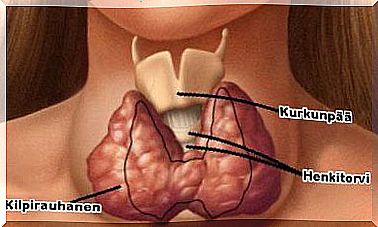Strengthening Or Stretching Muscles?

Both muscle strengthening and stretching are techniques widely used in the rehabilitation of various diseases. However, many ask, how do you know when to strengthen your muscles and when to stretch them? Which offers the greatest health benefits; stretching your muscles or should you start training by lifting weights anyway? We answer these questions below.
Muscle stretching
Stretching is a widely used technique that, in theory, helps reduce muscle pain and increase joint flexibility. However, it has been shown that stretching alone does not sustain these effects in the short term as with regular stretching, even after as long as 7 consecutive months.
It is believed that the increase in extensibility is actually due to the increased tolerance of the muscles to stretching, not so much to the fact that the muscles were lengthened with stretching exercises. However, some people feel good about stretching their muscles, be it static or dynamic stretching. If you belong to these people, consider the following aspects in general:
Muscle strengthening
Strengthening your muscles is not the same thing as going to the gym. If you lift heavy weights but feel a jerk on your back as you bend down, you are doing something wrong. Muscle strengthening is a process that should help your body move properly from day to day.
Remember that our bodies are designed to both move and run and carry more or less heavy things. The problem is that we live in a society accustomed to a passive lifestyle, where we spend much of the day sitting or lying down and, for example , no longer have to hunt for our own food every day.
And because exercise is no longer part of our normal daily activities, we need to consciously add it to our routine, whether it’s at the gym, through a workout at home, or through small, day-long workouts; which is best suited to our own routine at any given time.
When should you strengthen your muscles?
Muscles should be strengthened for the same reasons we want to stretch them:
- If you feel tension or pressure in any joint.
- If you spend a lot of time in the same position (for example, standing or sitting).
Muscle strengthening is also recommended for many other reasons, such as:
- If you have stretched your muscles to treat your symptoms and your symptoms do not improve or they improve temporarily and get worse at a later stage.
- When you breathe or get tired while climbing stairs.
- If you are recovering from an injury.
- If you are pregnant or recovering from childbirth.
- If you are elderly.
You should consult a personal trainer or a healthcare professional who knows the field, for whatever reason, especially in the following cases:
- You have not exercised before or it has been time since the last exercise.
- You are a minor.
- You are pregnant (or think you may be pregnant).
- You are elderly.
When should you avoid muscle strengthening?

Muscle strengthening should definitely be avoided after an acute injury or other injury. For example, you should not practice a limb that has suffered a fracture until the bone has healed properly. After a car accident or other injury, you should also make sure you get the green light from your doctor and physiotherapist before you start training.
You should also avoid muscle fitness training if you experience symptoms of overload. Physical overload, or so-called Overtraining, accumulates a state of chronic stress in the body, which can manifest itself as various disorders of the nervous system, metabolism and muscle function. A person suffering from overtraining may experience, for example, persistently elevated heart rate, stomach problems (diarrhea and constipation) and stress symptoms. A tired body also does not recover from training in the same way as before. Other symptoms associated with physical overload include:
- Significant decline in performance in sports, work, and daily activities
- Excessive fatigue
- Sudden mood swings
- Difficulty concentrating
- Insomnia or difficulty getting sleep
- Loss of appetite
- Muscle pain that does not ease over time
- Sudden changes in the menstrual cycle
Strengthening or stretching muscles: which is better?
There are many situations where muscle strengthening is more beneficial than stretching. However, the decision should be made based on which one you think will bring you more benefit.
If you’re worried about where to start, several different studies have shown that no matter which one you choose, both strengthening and stretching your muscles will always overcome just sitting or standing still. In other words, you just have to get moving.
And remember that instead of deciding what kind of workouts you want to do, what gym you want to enroll in, or what clothes you want to buy for your workout, it’s much more important to follow these lifestyle guidelines:
- Always warm up your muscles properly, whether it’s strengthening or stretching your muscles.
- Follow a healthy and balanced diet.
- Make sure you get enough rest to allow your body to recover properly from exercise.
- Maintains quality sleep.
- Be sure to drink enough water.









